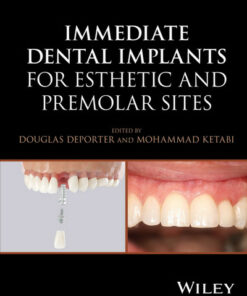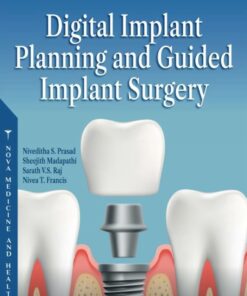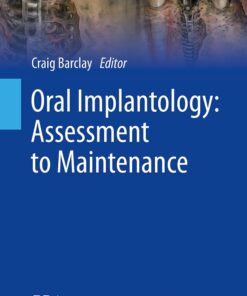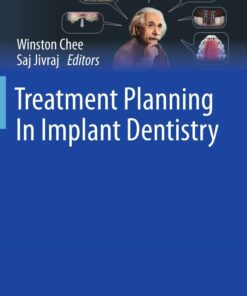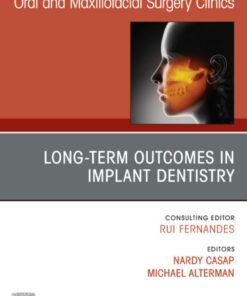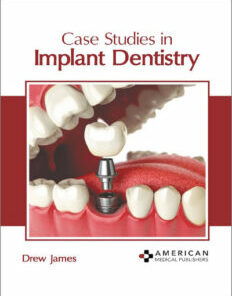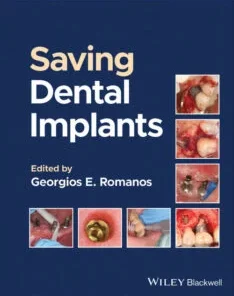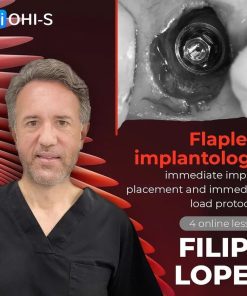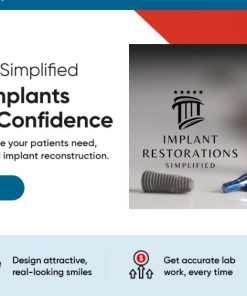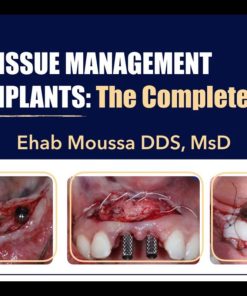The Benefits of Implantology: How Dental Implants Can Improve Your Oral Health
Discover the Benefits of Implantology Today!
Are you looking for a way to restore your smile and improve your oral health? Implantology is an advanced dental treatment that can help you achieve a beautiful, healthy smile. With implantology, you can replace missing teeth with permanent, natural-looking implants that look and feel just like your own teeth. Plus, implantology can help preserve your jawbone and facial structure, so you can maintain a youthful appearance. At DentalBooks.net, you can find all the information you need to learn more about implantology and how it can benefit you. Our comprehensive guide covers everything from the basics of implantology to the latest advances in the field. We also provide detailed instructions on how to prepare for implant surgery and what to expect during the procedure. With our help, you can make an informed decision about whether implantology is right for you. Don’t wait any longer to get the smile you deserve. Visit DentalBooks.net today to learn more about implantology and start your journey to a healthier, happier smile.
IMPLANTOLOGY
Parodontologia clinica e implantologia orale, Settima Edizione (Italian Edition) (EPUB)
IMPLANTOLOGY
IMPLANTOLOGY
Oral Implantology: Assessment to Maintenance (BDJ Clinician’s Guides) 2024th Edition PDF
IMPLANTOLOGY
Dental Video
IMPLANTOLOGY
IMPLANTOLOGY
IMPLANTOLOGY
IMPLANTOLOGY
IMPLANTOLOGY
Dental Video
OHI-S Flapless Implantology, Protocols for Immediate Implant Placement and Loading – Filipe Lopes
Dental Books
Dental Video
Dental Video
Dental Video
Dentistry Video
Dental Video
Dental Video
Dental Video
Dental Video
Dental Video
Dental Video
Introduction
Implantology is a branch of dentistry that focuses on the placement of dental implants. Dental implants are artificial tooth roots that are surgically placed into the jawbone to replace missing teeth. They provide a secure and stable foundation for replacement teeth, such as crowns, bridges, and dentures. Implantology offers many benefits to patients, including improved oral health, increased comfort, and enhanced aesthetics. This article will discuss the various benefits of implantology and how it can improve your oral health.
What are Dental Implants and How Do They Work?
Dental implants are a type of prosthetic device used to replace missing teeth. They are made from titanium, a metal that is biocompatible with the human body, and are surgically implanted into the jawbone. The implant acts as an artificial root for the replacement tooth, providing stability and support.
The process of getting dental implants begins with a consultation with your dentist. During this appointment, your dentist will evaluate your oral health and determine if you are a good candidate for the procedure. If you are approved, your dentist will take X-rays and impressions of your mouth to plan the placement of the implant.
Once the implant is placed, it takes several months for it to integrate with the surrounding bone and tissue. During this time, your dentist may place a temporary restoration on the implant to protect it while it heals. Once the implant has fully integrated, your dentist will attach an abutment to the implant. This is a small metal post that connects the implant to the replacement tooth.
The replacement tooth is then attached to the abutment. It can be a crown, bridge, or denture, depending on the number of teeth being replaced. The replacement tooth is custom-made to match the shape, size, and color of your natural teeth.
Dental implants are a great option for replacing missing teeth because they look and feel like natural teeth. They also provide a secure fit and are designed to last for many years. With proper care and maintenance, dental implants can last a lifetime.
The Benefits of Implantology: Improved Oral Health and Quality of Life
Implantology is a branch of dentistry that focuses on the placement and restoration of dental implants. Dental implants are artificial tooth roots that are surgically placed into the jawbone to replace missing teeth. Implantology has revolutionized the way we treat missing teeth, providing patients with improved oral health and quality of life.
The benefits of implantology are numerous. First and foremost, dental implants provide a secure and stable foundation for replacement teeth. Unlike traditional bridges and dentures, which rely on surrounding teeth for support, dental implants are anchored directly into the jawbone, providing a strong and durable foundation for replacement teeth. This helps to prevent shifting and slipping, which can cause discomfort and difficulty speaking or eating.
In addition to providing a secure foundation for replacement teeth, dental implants also help to preserve the integrity of the jawbone. When a tooth is lost, the jawbone begins to deteriorate due to lack of stimulation from the missing tooth root. Dental implants act as artificial tooth roots, stimulating the jawbone and preventing further deterioration. This helps to maintain the structure of the face and jaw, preserving the patient’s natural facial features.
Finally, dental implants can improve a patient’s overall quality of life. With dental implants, patients can enjoy a full range of foods without worrying about their dentures slipping or shifting. They can also speak and smile with confidence, knowing that their replacement teeth look and feel just like natural teeth.
Overall, implantology provides numerous benefits to patients who are missing one or more teeth. From improved oral health to enhanced quality of life, dental implants offer a safe and effective solution for replacing missing teeth. If you are considering dental implants, be sure to consult with an experienced implantologist to determine if they are right for you.
The Advantages of Dental Implants Over Other Restorative Treatments
Dental implants are a popular choice for restoring missing teeth, and with good reason. They offer many advantages over other restorative treatments, making them an ideal solution for many patients.
First and foremost, dental implants are the most natural-looking and longest lasting option for replacing missing teeth. Unlike dentures or bridges, which can be uncomfortable and require frequent replacement, dental implants are designed to last a lifetime. The implant itself is made of titanium, a biocompatible material that fuses with the jawbone to create a secure foundation for the artificial tooth. This fusion process, known as osseointegration, ensures that the implant will remain firmly in place and provide a stable base for the restoration.
In addition to their longevity, dental implants also provide superior comfort and function compared to other restorative treatments. Because they are securely anchored into the jawbone, they feel and function just like natural teeth. This means that patients can eat, speak, and smile with confidence, without worrying about their restoration slipping or shifting.
Finally, dental implants can help preserve the health of the surrounding teeth. Bridges and dentures require the alteration of healthy teeth in order to be placed, while implants do not. This helps to ensure that the remaining teeth remain strong and healthy.
Overall, dental implants offer numerous advantages over other restorative treatments. They are the most natural-looking and longest lasting option, provide superior comfort and function, and help to preserve the health of the surrounding teeth. For these reasons, they are often the preferred choice for restoring missing teeth.
The Cost of Dental Implants and Insurance Coverage
Dental implants are a popular and effective way to replace missing teeth. They provide a permanent solution that looks and feels natural, and they can last for many years with proper care. However, the cost of dental implants can be expensive, and insurance coverage may not cover all or any of the costs.
The cost of dental implants depends on several factors, including the type of implant, the number of implants needed, the complexity of the procedure, and the location of the dentist. Generally, the cost of a single implant ranges from $1,500 to $3,000. If multiple implants are needed, the cost can increase significantly. In addition, there may be additional costs associated with the procedure, such as anesthesia, x-rays, and follow-up visits.
When it comes to insurance coverage, most plans do not cover the cost of dental implants. Some plans may cover a portion of the cost, but this is usually limited to basic procedures. Even if your plan does cover some of the cost, you may still be responsible for paying a significant amount out of pocket.
If you are considering getting dental implants, it is important to understand the cost and insurance coverage before making a decision. Talk to your dentist about the cost of the procedure and ask if they accept your insurance. You may also want to contact your insurance provider to find out what coverage they offer for dental implants.
In some cases, financing options may be available to help cover the cost of dental implants. Your dentist may be able to provide information about financing options or refer you to a lender. Additionally, some employers offer flexible spending accounts (FSAs) or health savings accounts (HSAs) that can be used to pay for medical expenses, including dental implants.
Overall, the cost of dental implants can be expensive, and insurance coverage may not cover all or any of the costs. It is important to understand the cost and insurance coverage before making a decision. Talk to your dentist and insurance provider to find out what coverage is available and explore financing options if necessary.
The Risks and Complications Associated with Implantology
Implantology is a branch of dentistry that focuses on the placement of dental implants. Dental implants are artificial tooth roots that are surgically placed into the jawbone to replace missing teeth. While implantology can be an effective way to restore a patient’s smile, there are certain risks and complications associated with the procedure.
The most common risk associated with implantology is infection. During the implant placement procedure, bacteria can enter the surgical site and cause an infection. This can lead to swelling, pain, and even bone loss. To reduce the risk of infection, it is important for patients to practice good oral hygiene and follow their dentist’s instructions for post-operative care.
Another potential complication of implantology is nerve damage. During the implant placement procedure, the dentist must carefully place the implant in order to avoid damaging the nerves in the jawbone. If the implant is placed too close to a nerve, it can cause numbness or tingling in the area. In some cases, this nerve damage can be permanent.
In addition, implantology can also cause damage to the surrounding teeth. If the implant is not placed correctly, it can put pressure on the adjacent teeth, which can lead to cracking or chipping. It is important for the dentist to take extra care when placing the implant to ensure that the surrounding teeth are not damaged.
Finally, implantology can also cause allergic reactions. Some patients may be allergic to the materials used in the implant, such as titanium or zirconia. If the patient experiences any signs of an allergic reaction, they should seek medical attention immediately.
Overall, implantology is a safe and effective way to restore a patient’s smile. However, it is important for patients to understand the risks and complications associated with the procedure before undergoing treatment. By following their dentist’s instructions and practicing good oral hygiene, patients can reduce their risk of experiencing any of these complications.
Conclusion
Implantology is a revolutionary field of dentistry that offers numerous benefits to patients. Dental implants can improve oral health by providing a secure and permanent solution for missing teeth, restoring the natural look and feel of your smile, and preventing bone loss in the jaw. Additionally, dental implants are highly durable and require minimal maintenance, making them an ideal choice for those looking to maintain their oral health for years to come. With the help of implantology, you can enjoy a healthier, more beautiful smile.


